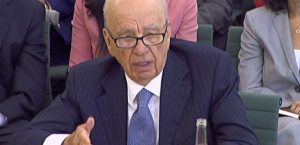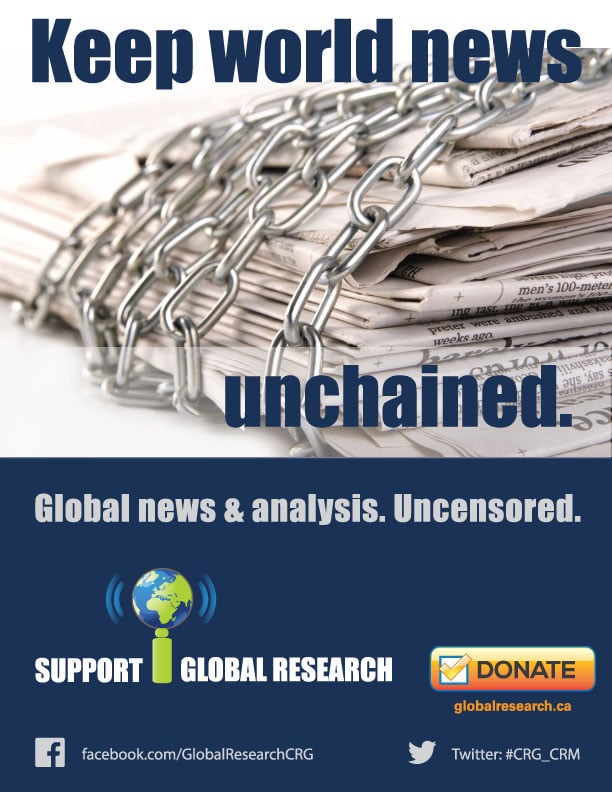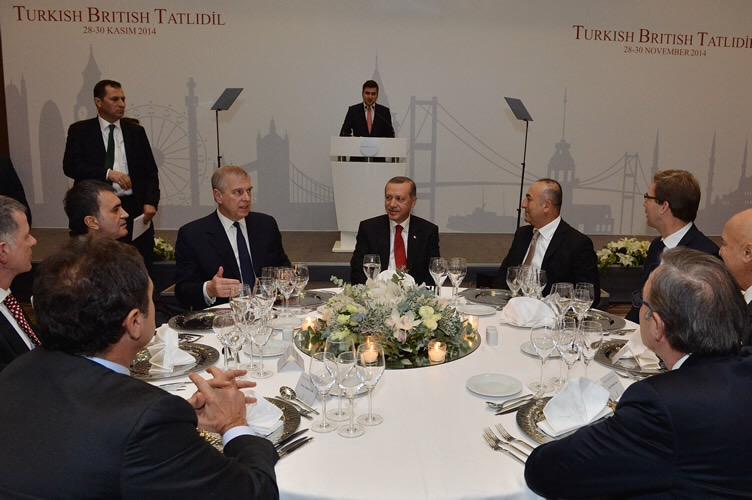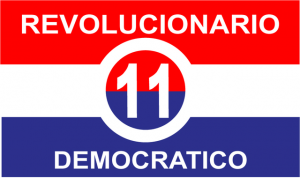If one thing drives me to write, especially these blog posts, it is the urgent need for us to start understanding power. Power is the force that shapes almost everything about our lives and our deaths. There is no more important issue. Understanding power and overcoming it through that understanding is the only path to liberation we can take as individuals, as societies, and as a species.
Which is why it should be simply astonishing that no one in the media, supposedly a free marketplace of ideas, ever directly addresses matters of power – beyond the shadow play of party politics and celebrity scandals.
And yet, of course, this lack of interest in analysing and understanding power is not surprising at all. Because the corporate media is the key tool – or seen another way, the central expression – of power.
Very obviously power’s main concern is the ability to conceal itself. Its exposure as power weakens it, by definition. Once exposed, power faces questions about its legitimacy, its methods, its purposes. Power does not want to be seen, it does not want to be confined, it does not want to be held accountable. It wants absolute freedom to reproduce itself, and ideally to amass more power.
That is why true power makes itself as invisible and as inscrutable as it can. Like a mushroom, power can grow only in darkness. That is why it is the hardest thing to write about in ways that are intelligible to those under its spell, which is most of us, most of the time. Because power coopts language, words are inadequate to the task of describing the story of real power.
Ripples on the surface
Notice I refer to power, not the powerful, because power should be understood more as an idea made flesh, an ideological matrix of structures, a way of understanding the world, than a set of people or a cabal. It has its own logic separate from the people who are considered powerful. Yes, politicians, celebrities, royalty, bankers and CEOs are part of its physical expression. But they are not power, precisely because those individuals are visible. The very visibility of their power makes them vulnerable and potentially expendable – the very opposite of power.
The current predicaments of Prince Andrew in Britain or Harvey Weinstein in the US are illustrative of the vagaries of being powerful, while telling us little meaningful about power itself. Conversely, there is a truth in the self-serving story of those in power – the corporate executives of an Exxon or a BP – who note on the rare occasions when they face a little scrutiny that if they refused to do their jobs, to oversee the destruction of the planet, someone else would quickly step in to fill their shoes.
Rather than thinking in terms of individuals, power is better visualised as the deep waters of a lake, while the powerful are simply the ripples on the surface. The ripples come and go, but the vast body of water below remains untouched.
Superficially, the means by which power conceals itself is through stories. Its needs narratives – mainly about those who appear powerful – to create political and social dramas that distract us from thinking about deep power. But more fundamentally still, power depends on ideology. Ideology cloaks power – in a real sense, it ispower – because it is the source of power’s invisibility.
Ideology provides the assumptions that drive our perceptions of the world, that prevent us from questioning why some people were apparently born to rule, or have been allowed to enclose vast estates of what was once everyone’s land, or hoard masses of inherited wealth, or are celebrated for exploiting large numbers of workers, or get away with choking the planet to the point at which life itself asphyxiates.
Phrased like that, none of these practices seems natural. In fact, to a visiting Martian they would look pathologically insane, an irrefutable proof of our self-destructiveness as a species. But these conditions are the unexamined background to our lives , just the way things are and maybe always were. The system.
True, the individuals who benefit from the social and economic policies that uphold this system may occasionally be held to account. Even the policies themselves may occasionably be held up to scrutiny. But the assumptions behind the policies are rarely questioned – certainly not in what we are taught to call the “mainstream”.
That is an amazing outcome given that almost none of us benefit from the system we effectively sanction every time we turn out to vote in an election. Very few of us are rulers, or enjoy enormous wealth, or live on large estates, or own companies that deprive thousands of the fruit of their labours, or profit from destroying life on Earth. And yet the ideology that rationalises all that injustice, inequality and immorality not only stays in place but actually engenders more injustice, more inequality, more immorality year by year.
We watch this all unfold passively, largely indifferently because we believe – we are made to believe – we are powerless.
Regenerating like Dr Who
By now, you may be frustrated that power still lacks a name. Is it not late-stage capitalism? Or maybe neoliberalism? Globalisation? Or neoconservatism? Yes, we can identify it right now as ideologically embedded in all of those necessarily vague terms. But we should remember that it is something deeper still.
Power always has an ideological shape and physical structures. It has both faces. It existed before capitalism, and will exist after it (if capitalism doesn’t kill us first). Human history has consisted of power consolidating and regenerating itself in new form over and over again – like the eponymous hero of the long-running British TV sci-fi series Doctor Who – as different groups have learnt how to harness it, usurp it and put it to self-interested use. Power has been integral to human societies. Now our survival as individuals and as a species depends on our finding a way to reinvent power, to tame it and share it equally between us all – and thereby dissolve it. It is the ultimate challenge.
By its very nature, power must prevent this step – a step that, given our current predicament, is necessary to prevent planetary-wide death. Power can only perpetuate itself by deceiving us about what it has done in the past and will do in the future, and whether alternatives exist. Power tells us stories that it is not power – that it is the rule of law, justice, ethics, protection from anarchy or the natural world, inevitable. And to obscure the fact that these are just stories – and that like all stories, these ones may not actually be true, or may even be the opposite of truth – it embeds these stories in ideology.
We are encouraged to believe that the media – in the widest sense possible – has authority alone to tell us these stories, to promote them as orthodoxy. It is the lens through which the world is revealed to us. Reality filtered through the lens of power.
The media is not just newspapers and TV news broadcasts. Power also exerts its hold on our imaginative horizons through all forms of “popular” entertainment, from Hollywood films and Youtube videos to social media and video games.
In the US, for example, almost all media is owned by a handful of corporations that have diverse interests related to power. Power expresses itself in our modern societies as wealth and ownership. And corporations stand at the apex of that power structure. They and their chief functionaries (for corporate executives do not really control power, it controls them) own almost all of the planet’s resources, they hold almost all of the wealth. They typically use their money to buy attention for themselves and their brands while at the same time buying invisibility for deep power.

To take one example: Rupert Murdoch’s (image on the right) power is visible to us, as are his negative personal qualities and occasionally the pernicious influence of his newspapers. But it is not just that his media outlets play a part in shaping and controlling what we talk about on any given day, for good or bad. They also control – all the time – what we are capable of thinking and not thinking. That is true power. And that role will never be mentioned by a Murdoch organisation – or any of his supposed rivals in the corporate media. It is the preserve of blogs like this one for very obvious reasons.
That makes media corporations a key pillar of the matrix of power. Their journalists are servants of corporate power, whether they know it or not. Mostly, of course, they do not.
The veiling of power
These thoughts were provoked by a rare comment from a prominent corporate journalist about power. Jonathan Freedland is a senior columnist at the supposedly liberal Guardian, and a British equivalent of Thomas Friedman or Jeffrey Goldberg. His job is to help make deep power invisible, even as he criticises the powerful. Freedland’s stock-in-trade is using the ephemeral dramas of political power to veil true power.
It was therefore intriguing to see Freedland actually try to define “power” in a recent column intended to dissuade people from backing Bernie Sanders as the Democratic nominee. Here is what he writes in reference to power:
If recent events have reminded us of anything, it’s that in politics, power is the whole ballgame. …
Most significant of all, a [political] party in power has the ability to create the conditions that ensure it keeps it. …
It’s understanding the power of power, a truth so obvious that it should barely need stating, that is driving some battle-hardened veterans of past left campaigns to despair. “Nothing. Without power, there is nothing,” fumed James Carville, who ran the last successful Democratic effort to oust a sitting Republican president when he masterminded Bill Clinton’s victory back in 1992.
But the first step is to accept its importance, to recognise that winning power is the sine qua non of politics, literally the thing without which there is nothing.
Notice that from the outset Freedland limits his definition of power in ways that are designed to assist power rather examine or scrutinise it. He states something meaningful – the importance of “understanding the power of power, a truth so obvious that it should barely need stating” – but then resolutely obscures the “power of power”.
What Freedland addresses instead is a lesser form of power – power as visible political drama, the illusion that we, those who currently have no real power, can exercise power by voting for candidates already selected for their ideological subservience to power, in a political and economic system structured to serve power, in a media and cultural landscape where those who try to address or challenge real power either end up being dismissed as “conspiracy theorists”, or “tinfoil hat-wearing” leftists, or crazed socialists; or end up being locked away as subversives, as dangers to society, as has prominently happened to Chelsea Manning and Julian Assange.
A small hint that Freedland is veiling power – from himself too – is his unthinking reference to Bill Clinton’s election adviser as running a “left campaign”. Of course, stripped of a narrative that serves power, neither Clinton nor his campaign could ever have been described as of the left.
While Freedland frets about how political power has moved to the right in the US and UK, he also indulges the deceptive consolation that cultural power – “the media, the Academy, entertainment”, as he refers to it – can act as a liberal-left counterweight, even if an ineffective one, to the right’s political power. But as I pointed out, the media and entertainment world – of which Freedland is very much part – are there precisely to uphold power, rationalise it, propagandise for it, and refine it so as to better conceal it. They are integral to the shadow play, to the veiling of real power. The left-right dichotomy – within the severely circumscribed limits he and his colleagues impose – is part of that veiling process.
Freedland’s seeming analysis of power does not, of course, lead him to consider in any meaningful way the most pressing and vital issues of the moment, issues that are deeply entwined with what power is and how it functions:
- how we might upend economic “orthodoxy” to prevent the imminent collapse of a global financial system fallaciously premised on the idea of infinite growth on a finite planet,
- and how, if we are to survive as a species, we might deal with a corporate power that is polluting the planet to death through the aggressive cultivation of rampant, profit-driven consumerism.
These issues are only ever addressed tangentially in the corporate media, in ways that do not threaten deep power.
Glitches in the system
The kind of power Freedland focuses on is not real power. He is interested only in taking “power” away from Donald Trump to give it to a supposedly “electable” candidate for the Democratic party, like Pete Buttigieg or Michael Bloomberg, rather than a supposedly “unelectable” Sanders; or to take “power” from Boris Johnson through a “moderate”, pliable Labour party reminiscent of the Tony Blair era rather than the “alienating” democratic socialism he and his colleagues worked so relentlessly to undermine from the moment Jeremy Corbyn was elected Labour leader.
In other words, for Freedland and the entire spectrum of the corporate media, the only discussion they care to have is about who might best serve a superficial, ephemeral political power – without actually defining or even alluding to real power.
There is good reason for this. Because if we understood what power is, that it depends on ideas that we have been force-fed our every waking moment, ideas that enslave our minds and are now poised to kill us, we might decide that the whole system of power, not just its latest pretty or ugly face, needs to be swept away. That we need to start with entirely new ideas and values. And that the only way to liberate ourselves from our current pathological, self-destructive ideas is to stop listening to the loyal functionaries of power like Jonathan Freedland.
The current efforts to stop Sanders from winning the Democratic nomination do at least help to open our eyes.
The Democratic party is one of the two national US parties whose role, like the corporate media, is to conceal deep power. Its function is to create the illusion of choice, and thereby keep the viewing public engrossed in the drama of politics. That does not mean that there are no differences between the Republican and Democratic parties. There are, and for some people they are meaningful and can be vitally important. But those differences are completely trivial from the perspective of power.
In fact, power’s goal is to magnify those trivial differences to make them look like major differences. But whichever party gets into “power”, the corporations will keep despoiling and destroying the planet, they will continue driving us into profit-making wars, and they will carry on accumulating vast wealth largely unregulated. They will be able to do so because the Republican and Democratic party’s leaderships rose to their current positions – they were selected – by proving their usefulness to deep power. That is the power of power, after all.
That is not to say there are never glitches in the system. Mistakes happen, though they are usually corrected quickly. The system is not all-powerful – not yet, at least. Our situation is not necessarily hopeless, though the struggle is immensely difficult because most of us have not yet worked out what power is and therefore have no idea how it might be confronted.
Power has had to make historic compromises, to take defensive actions in the hope of maintaining its invisibility. In the west, it eventually conceded the vote to all adult men, then women, to ensure its legitimacy. As a result, power shifted from expressing itself through implicit or overt threats of physical violence to maintain order and moved towards manufacturing an ideological consensus – our current passivity to our imminent self-destruction – through education systems and the corporate media.
(The threat of violence is only veiled, and can be made explicit against those who doubt the legitimacy of power or try to stop its descent into self-destruction, as Extinction Rebellion will increasingly find the more it pushes for deep and systemic change.)
Power’s relentless drive to feed the insatiable appetite it has created for us as consumers, and its obsession with technological fixes as a way to maximise efficiency and profits, sometimes create these glitches. They open up new possibilities for exposing power. One recent example is the information publishing revolution embodied by social media. Power is now desperately trying to stuff that genie back into the lamp with self-serving narratives about “fake news” on the left (made more credible by conflating it with power-serving fake news on the right), as well as making drastic changes to algorithms to disappear the left’s rapidly emerging counter-narratives.
And most importantly, power is struggling to maintain the illusion of its benign nature, of normal service, in the face of real-world facts, such as the planet heating up, runaway fires in Australia, balmy winter temperatures in the Antarctic, the mass die-off of insects, and the tide of plastic choking the oceans. Its efforts to exploit the wealth-generating opportunities offered by the climate and wider environmental emergencies, while refusing to acknowledge that it is entirely responsible for those emergencies, may yet backfire. The question is not whether we wake up to the role of power, but whether we do so before it is too late to effect change.
The Sanders threat

Sanders (image on the left) is one of those glitches. Just like Jeremy Corbyn was in the UK. They have been thrown up by current circumstances. They are the first signs of a tentative political awakening to power, sometimes dismissed generically as “populism”. They are the inevitable outcome of the ever greater difficulty power faces in concealing its self-destructiveness as it seeks to remove every last limit to its voracious acquisitiveness.
Once upon a time, those who paid the price of power were out of view, in disenfranchised, urban slums or far-off lands. But the accelerating contradictions of power – of late-stage, global capitalism, if you prefer a specific name – have brought those effects much closer to home, where they cannot so easily be ignored or discounted. Growing sections of western societies, the central locus of power, understand that there needs to be serious, not cosmetic, change.
Power needs to be rid of Sanders, just as it previously had to rid itself of Corbyn because both are that rarest thing – politicians who are not imprisoned within the current power paradigm. Because they do not serve power cultishly like most of their colleagues, such politicians threaten to shine a light on true power. Ultimately, power will use any tool to destroy them. But power prefers, if possible, to maintain its cloak of invisibility, to avoid exposing the sham of the consumption-driven “democracy” it engineered to consolidate and expand its power. It prefers our collusion.
The reason the Democratic party establishment is trying to bring down Sanders at the primaries stage and crown a power-functionary like Buttigieg, Biden or even Elizabeth Warren – or if it must, parachute in a billionaire like Michael Bloomberg – is not because Sanders would on his own be able to end the globe-spanning power of pathological capitalism and consumerism. It is because the nearer he gets to the main shadow play, to the presidency, the more power will have to make itself visible to defeat him. (Language makes it difficult to describe this dynamic without resorting to metaphors that make power sound fancifully human rather than structural and ideological.)
As the other candidates increasingly look unsuited to the task of toppling Sanders for the nomination, and rigging the primaries has proved much harder to do covertly than it was hoped, power has had to flex its muscles more publicly than it likes. So narrative is being marshalled to destroy Sanders in the same way that the antisemitism and Brexit narratives were used to halt Corbyn’s grassroots movement in its tracks. In Sanders’ case, the corporate media is preparing a readymade Russia narrative against him in case he gets nearer to power – a narrative that has already been refined for use against Trump.
(Trump’s relation to power could be the basis for an entirely separate post. He is not an ideological threat to power, he is one if its functionaries. But he is a potential Harvey Weinstein or Prince Andrew. He can be sacrificed if needs be. The Russiagate narrative has served two purposes useful to power. It has tamed Trump’s ego-based politics to ensure he does not threaten deep power by making it more visible. And it has created a compelling political drama that channels and dissipates the “resistance” to Trump, satisfying much of the left’s own need to feel they are doing something, when in fact they are simply strengthening Trump and deep power.)
Caught in a trap
Late last week, as the landslide in Nevada for Sanders was imminent, the western media reported claims, based on unnamed “US officials”, that the Vermont senator is seen by the Russians as an “asset”, and that they are trying to help either him or Trump to get elected. No one making that claim was identified, no explanation was offered of how Sanders could serve as an asset, nor was evidence cited for how the Russians might be able to help Sanders win. Power doesn’t need facts or evidence, even when its claims are self-evidently disruptive to the democratic process. It exists chiefly in the realm of narrative and ideology. This is a story, just like Corbyn’s “antisemitism crisis”, that is made true simply through repetition.
Because power is power, its narratives can defy the most elementary rules of logic. After all, how could an unverified, evidence-free narrative about Russian interference on behalf of Sanders’ campaign be more important than actual interference by anonymous “US officials” intended to damage Sanders’ campaign ? How could such undemocratic, unaccountable efforts to interfere in the outcome of the US election be so readily peddled by the media unless the entire press corps is incapable or unwilling to engage their critical faculties in favour of the democratic principles they claim to uphold? Unless, in truth, they are not there representing us, the people, and our interests, but are instead simply servants of what amounts to a power-cult.
As I have documented many times before, Corbyn found himself caught in a trap of the kind now faced by Sanders. Any supporter (including Jews) who denied that the Labour party Corbyn led was antisemitic, or argued that the antisemitism claims were being weaponised to damage him, was cited as proof that Corbyn had indeed attracted antisemites to the party. Concluding that Corbyn’s Labour party was not antisemitic, based on the evidence, was treated as evidence of antisemitism. But as soon as Corbyn agreed under media and party pressure to accept the alternative – that an antisemitism problem had taken root on his watch – he was also implicitly forced to concede that something about him and his values had allowed antisemitism to take root. He found he was damned either way – which is precisely how power makes sure it emerges the winner.
Unless we can develop our critical faculties to resist its propaganda, power holds all the cards and can play them the way that best suits its interests. The Russia narrative can be similarly written and rewritten in any way needed to damage Sanders. If he dissociates himself from the Russia narrative, it can be cited as proof that he is in the Kremlin’s pocket. But if Sanders supports the claims of Trump’s collusion with Russia, as he has done, he confirms the narrative that Vladimir Putin is interfering in the election – which can then be twisted when necessary to present Sanders as another of Russia’s assets.
The message is: A vote for Trump or Sanders will put Putin in change of the White House. If you’re a patriot, better to choose a safe pair of hands – those of Buttgeig, Biden or Bloomberg. (Paradoxically, one of the glitches might be a US presidential election campaign between two billionaires, a “choice” between Trump and Bloomberg. Should power become too successful in engineering the electoral system to serve its interests alone, too successful in allowing money to buy all political influence, it risks making itself visible to a wider section of the public than ever before.)
None of this should be seen as sinister or conspiratorial, though of course it sounds that way to those who fail or refuse to understand power. It is in the logic of power to exercise and consolidate its power to the greatest extent possible. And power has been accumulating power to itself over centuries, over millennia. Our failure to understand this simple truth is really a form of political illiteracy, one that has been engendered by our submission to, our worship of, power.
Those caught up in the drama of politics, the surface ripples – which is almost all of us, almost all of the time – are actors in, rather than witnesses to, the story of power. And for that reason we can see only other actors, the battles between the the powerful and the powerless, and between the powerless and the powerless, rather than power itself.
We watch the drama without seeing the theatre in which that drama is unfolding. In fact, power is much more than the drama or the theatre. It is the unseen foundations on which the theatre is built. To employ another metaphor, we are like soldiers on the battlefields of old. We slaughter – or are slaughtered by – people no different to us, defined as an enemy, cheered on by generals, politicians and journalists in the service of a supposed ideal we cannot articulate beyond the emptiest slogans.
Power is the structure of the thoughts we think we control, a framework for the ideologies we think we voted for, the values we think we choose to treasure, the horizon of imaginations we think we created. Power exists only so long as we consent to it through our blind obedience. But in truth, it is the weakest of opponents – it can be overcome simply by raising our heads and opening our eyes.
*
Note to readers: please click the share buttons above or below. Forward this article to your email lists. Crosspost on your blog site, internet forums. etc.
Jonathan Cook won the Martha Gellhorn Special Prize for Journalism. His books include “Israel and the Clash of Civilisations: Iraq, Iran and the Plan to Remake the Middle East” (Pluto Press) and “Disappearing Palestine: Israel’s Experiments in Human Despair” (Zed Books). His website is www.jonathan-cook.net. He is a frequent contributor to Global Research.










 Can you
Can you 








































